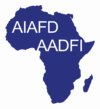
In a remarkable demonstration of development finance in action, the Uganda Development Corporation (UDC) has significantly expanded its investment footprint, positioning itself as a catalyst for Uganda’s industrialization and sustainable economic development.
Since its re-establishment in 2016, UDC – Uganda’s state-owned development finance institution – has deployed capital strategically into high-impact sectors such as agro-manufacturing, infrastructure and services as well as mineral beneficiation. Within just six years, UDC has grown its portfolio from one project to eighteen, underlining the critical role national DFIs play in transforming African economies through targeted industrial investments.
UDC’s investments in agro-processing are delivering tangible socio-economic dividends across Uganda. In the Rwenzori region, its revitalization of Mabale and Mpanga Tea Growers Factories has safeguarded rural livelihoods and ensured market access for thousands of smallholder farmers. Similar projects in Kabale, Kisoro, Kanungu, Soroti, Yumbe, Luuka, and Budadiri are contributing to value addition in tea, fruit, sugarcane, cotton, coffee, and cassava, fuelling rural industrialization and inclusive economic participation.
In total, these projects have created or preserved over 4,546 direct jobs, with many more supported indirectly, underscoring UDC’s alignment with Uganda’s Vision 2040 and the African Union’s Agenda 2063 for industrial-led development.
Beyond agriculture, UDC has made impactful investments in infrastructure, notably supporting Abubaker Technical Services, a key local player in Uganda’s road construction sector. On Bugala Island, UDC, in partnership with Kalangala Infrastructure Services (KIS), delivered a comprehensive infrastructure package that includes; ferry transport, solar mini-grid, piped water, and tarmac road. This has significantly improved the island’s livability and connectivity.
In the pharmaceutical sector, UDC’s strategic partnership with East African Medical Vitals is reducing Uganda’s reliance on imported medical gloves, thus saving the country millions of dollars annually and building critical industrial resilience in the healthcare supply chain.
Among UDC’s most transformative recent investments are two projects that address strategic gaps in Uganda’s manufacturing ecosystem i.e. animal health production and textile industrialization.
UDC’s investment in Sanga Vet Chem Ltd marks a pivotal moment in Uganda’s agro-industrial journey. Sanga Vet Chem is manufacturing critical animal health products such as acaricides, dewormers, and parasite remedies. This venture not only reduces dependence on imported veterinary inputs but also ensures that livestock farmers across Uganda gain timely access to high-quality, affordable products. The investment is strengthening the domestic agro-input value chain and contributing to food security and rural prosperity.
Equally transformative is UDC’s partnership with Fine Spinners Uganda Ltd, a vertically integrated cotton-to-garment manufacturer. This investment positions Uganda as a regional hub for sustainable textile production. By harnessing locally grown cotton and converting it into finished garments, Fine Spinners is driving import substitution, enhancing export competitiveness, and creating high-quality jobs across the textile value chain. The initiative represents a model for full-value-chain industrialization and is a cornerstone in Uganda’s efforts to participate meaningfully in global trade.
UDC also co-financed the construction of the Speke Resort Convention Centre, a landmark investment that strengthens Uganda’s position as a regional hub for business tourism, unlocking new avenues for service exports, tourism and employment.
As Africa continues to grapple with the twin challenges of industrialization and job creation, UDC stands out as a model national development finance institution. Through its diversified and impact-focused portfolio, UDC exemplifies how DFIs can leverage capital to drive structural transformation, enhance export capacity, and support regional development objectives.
With a growing, impact-driven portfolio and a clear focus on national development priorities, UDC is accelerating Uganda’s transition to middle-income status, an achievement that echoes the AADFI’s vision of empowering DFIs as engines of Africa’s economic renaissance.





